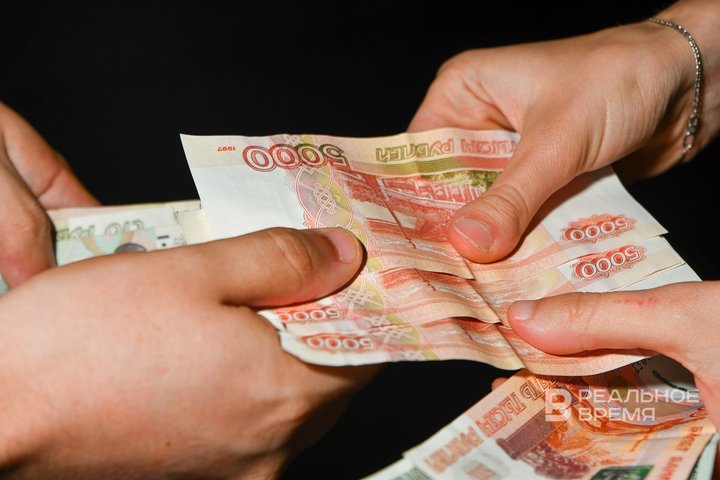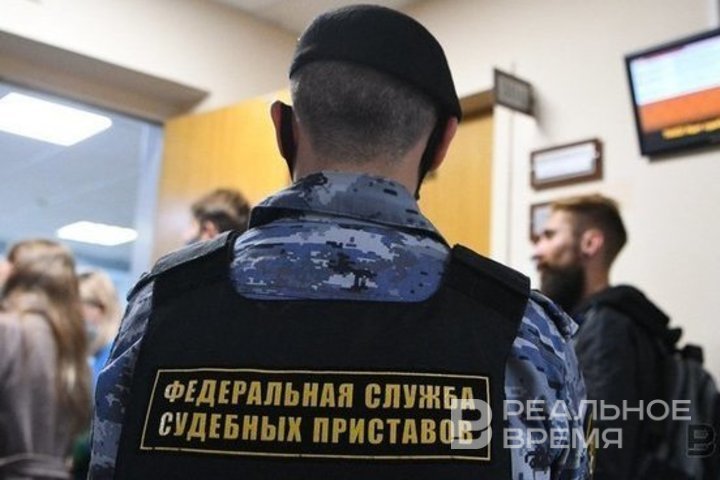Open register of alimony payers, increased recycling fee, and cooling-off period for loans
New laws and regulations that will affect the lives of citizens and businesses in Russia from May 2025

Starting in May 2025, penalties for personal data leaks will be increased in Russia, and lists of malicious alimony defaulters will be publicly displayed. In addition, the procedure for calculating child benefits will be simplified, and fines for traffic violations will increase again. Recycling will begin to be calculated according to a new formula, and this will lead to a rise in the cost of cars by a quarter, experts warn. About these and other changes in legislation — in the material of Realnoe Vremya.
It will be easier to get child support
Starting from May 15, 2025, changes in the procedure for calculating child benefits will come into force in Russia. They are expected to affect millions of Russian families. The key difference is that the calculation period for estimating family income has been shortened. Now, when applying for benefits, only three or six months will be taken into account instead of the entire previous year. In this case, families whose income has decreased recently will have the opportunity to apply for social assistance faster.
In addition, a tolerance for a slight excess of the subsistence minimum is being introduced. Previously, exceeding the threshold by even a few dozen rubles deprived those in need of the right to receive benefits, but now a regulatory threshold will be provided and assistance will be provided, even if income does not formally comply with the rules. The exact coefficient has not been announced yet. The third innovation provides for a revision of the income calculation methodology. Now the amount of personal income tax paid will not be taken into account. Income will be calculated taking into account taxes already withheld, that is, according to the actual amount that the family receives.

Fines for traffic violations will increase
From May 1, 2025, updated fines for traffic violations will begin to operate in Russia, as well as new rules for recording violations using cameras. For example, the fine for running a red light will increase to 2,500 rubles instead of the current 1,000. Driving into the oncoming lane will cost 7,000 rubles and will result in disqualification for up to six months. The violator will pay 3,000 rubles for stopping at a pedestrian crossing. Along with this, an automatic system for recording certain violations will start operating in May. The cameras will “catch” driving at a forbidding traffic light, driving in the oncoming lane and stopping at a zebra crossing.
The OSAGO check system will also be launched in test mode. Warnings to violators will be sent through the Gosuslugi portal. If the absence of insurance is detected for the first time, the fine remains at the same level and will amount to 800 rubles, and if the violation is repeated, the amount will range from 3,000 to 5,000 rubles.
The sale of handmade cosmetics may be restricted
Mandatory labelling of cosmetics begins on May 1, 2025. Manufacturers of packaged cosmetics will not be able to sell their goods without applying labelling codes through the Chestny Znak system, which protects customers from counterfeiting. The marking code serves as a quality mark, it confirms the safety of products. However, according to the rules of the system, the self-employed are not allowed to order codes. Starting in May, packaged products cannot be sent by mail or delivery service, as the absence of labelling on the package will equate the product to counterfeit.
It will be obligatory to label soap and other skin cleansers; hair care products; makeup products; skin care products; tanning and sun protection products; deodorants; shaving products; dental and oral hygiene products.
It is assumed that after May 1, 2025, the marketplace may prohibit self-employed sellers from selling soap and cosmetics in order not to violate the law. The only legitimate way for home craftsmen to sell their products is to sell them at exhibitions and fairs.
Mandatory labelling will also be required for other product categories. In particular, from May 1, identification tools should appear on snacks — chips, nachos, crackers, corn sticks, bread rolls, etc.
Penalties for leaking personal data will be stricter
Starting from May 30, 2025, new requirements will be imposed on the processing of personal data. The penalty for violating the law on the protection of personal information will increase 10 times. Thus, punishment is threatened in case of failure to report the leak to Roskomnadzor; transfer of personal information to third parties without the consent of the subject; negligence of the operator who leaked; lack of measures to protect personal data, this will be qualified as non-compliance by companies with information security standards. The maximum fine will reach 3-5 million rubles, which is the amount companies will be required to pay for information leaks from more than 10,000 subjects.

Recycling fee by a new formula
Starting from May 1, 2025, the recycling fee for vehicles imported from the EAEU countries will be calculated in a new way. If earlier it was straightforward, now additional parameters will be taken into account. These include the average cost of a vehicle and the actual cost of purchasing it. The calculation will be carried out taking into account information about transport from the list, which is formed by the Ministry of Industry and Trade of the Russian Federation. It is assumed that the new rules will lead to a rise in car prices by a quarter.
The purpose of the changes is to curb car import schemes through neighboring EAEU countries, where importers use preferential customs clearance conditions to lower the cost of vehicles.
From May 1, when importing cars to customs, it will be necessary to submit a full package of documents that confirm the actual costs. If the documents are not submitted, the fee will be calculated at the maximum rate, which is about 60% of the cost of the car. The calculation will also include the difference between Russian and European rates, the missing amount and VAT.
The innovation will not affect individuals who purchase a car for personal use. For them, the fee will remain preferential (3,400 or 5,200 rubles for cars with an engine of up to 3 litres).
Borrowers will be offered to “cool off”
Starting from May 15, Russia will introduce a so-called cooling-off period before issuing loans. Amounts from 50 to 200 thousand rubles will be issued only after 4 hours after the application is approved, and amounts over 200 thousand rubles will not be issued until 48 hours have passed. Under the new rules, banks are required to collect all information about the borrower from all major credit bureaus. And borrowers themselves will receive a written notification of the deadline for transferring credit funds and will have the right to refuse money during this time.

Bloggers will be required to specify new OKVED codes
Starting from May 1, bloggers who are now required to be registered with Roskomnadzor must add new OKVED codes (All-Russian Classifier of Economic Activities). These include the dissemination of information on social media, public relations, the distribution of advertising on social networks, and the activities of advertising agencies. If the blogger registered before May 1, 2025, he can add new codes through the public services portal, the taxpayer's personal account, the FTS website or the registration authority. Roskomnadzor will control fees from online advertising.

Names of child support defaulters will become widely known
At the end of May, the register of abusive child support debtors in Russia will become publicly available. The list will include those who were previously involved in non-payment of alimony for children or disabled parents, but have not improved. We are talking about debtors who have been brought to administrative or criminal responsibility. Their full name, date and place of birth, the amount of accumulated debt, and information about legal proceedings against them will be publicly available. There are no additional prohibitions against malicious defaulters yet. The open registry will be formed by the Federal Bailiff Service of the Russian Federation. It will be published on the agency's website and constantly updated.